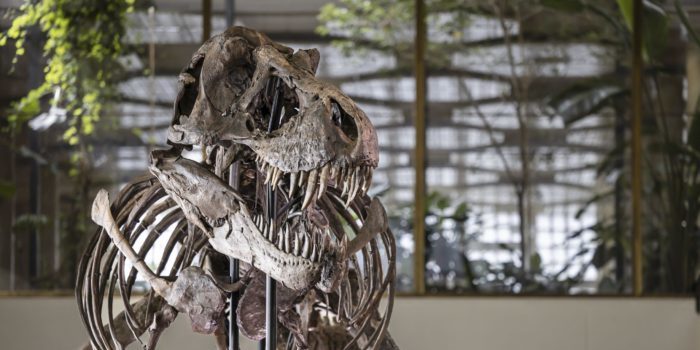(Luis Cornelio, Headline USA) Dinosaurs may have become extinct millions of years ago, but that doesn’t imply they didn’t leave behind traces of sexism and racism — at least, that’s the assertion from some scientists today.
Researchers are now calling for a reconsideration of dinosaur names in the name of inclusivity, with some factoring in the location and circumstances of the discovery in the naming process, reported the scientific journal Nature on Tuesday.
Paleobiologist Emma Dunne, who features her pronouns on her Twitter bio, and colleagues at Germany’s Friedrich-Alexander University allege that 3% of the 1,500 dinosaurs discovered in the past two centuries carry associations with racism and sexism.
The researchers argue that many were named within “(neo)colonial contexts or after controversial figures.”
According to Nature, the researchers found that most dinosaurs named after the individuals who found them were given male names, prompting a suggestion to instead name them based on their physical characteristics.
The International Commission on Zoological Nomenclature (ICZN), the entity overseeing naming conventions, is pushing back these calls for change.
“We do not recommend renaming unless there are what we would call formal nomenclatural reasons,” ICZN president Thomas Pape said, expressing concerns about potential disruption to the “stability” of current names.
Pape did express a willingness to explore alternative names, including a system where potential names are subjected to peer reviews.
Despite the pushback, an individual who contributed to the study is demanding change.
Paleontologist Evangelos Vlachos conceded that despite the relatively small number of alleged “problematic” names, considering name changes is crucial.
“The problem in terms of numbers is really insignificant. But it is significant in terms of importance,” Vlachos claimed, according to Nature.
“We don’t say that tomorrow we need to change everything. But we need to critically revise what we have done, see what we have done well and what we have not done well, and try to correct it in the future,” he added.
Critics made their voice heard on Twitter:
NEW – German palaeobiologists think 89 dinosaurs have “potentially offensive names” and call for “more rigorous” naming guidelines.https://t.co/I1pZhPSf6v
— Disclose.tv (@disclosetv) February 21, 2024
We deserve to be hit by a meteor https://t.co/WUOIi3qLdn
— Suburban Gal (@SuburbsGal) February 21, 2024
They’re coming for the Trannosaurus https://t.co/Nn10bYRCug pic.twitter.com/yvXPkK5PAz
— Supreme Grillmaster Vanir (@Dark_Asgard_) February 22, 2024
Proof people are finally running out of things to get offended by👇🏻 https://t.co/OYVqZtLQop
— Truthstream Media (@truthstreamnews) February 21, 2024

